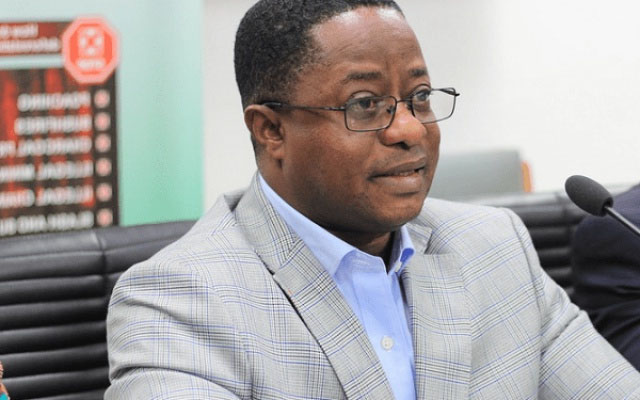John Peter Amewu – Energy Minister
FINANCE MINISTER Ken Ofori-Atta yesterday mentioned that Ghana’s energy sector was bedeviled with serious challenges that posed grave financial risks to the whole economy.
“At the heart of these challenges is the obnoxious take-or-pay contracts signed by the NDC, which obligate us to pay for capacity we do not need. We must urgently address these challenges to protect the hard-earned economic gains we have made in the past two-and-a-half years and continue with our economic growth and jobs agenda to improve the lives of Ghanaians,” he said.
Reading the mid-year budget review he said “This Supplementary Budget therefore proposes a number of bold measures to confront the issues to ensure that the energy sector delivers the services required by Ghanaians, while maintaining financial viability.”
Renegotiation
Starting August 1, this year, Government is to pay for energy and gas that the country actually consumes. This forms part of its determination to convert all take-or-pay contracts into take-and-pay contracts.
“All take-or-pay contracts will be renegotiated to convert to take-and-pay for both Power Purchase Agreements (PPAs) and gas supply agreements (GSAs), Minister of Finance, Ken Ofori-Atta, disclosed yesterday in Parliament.
Touching on the two main issues that confronted the energy sector, Mr Ofori-Atta noted: “Firstly, excess electricity generation which was procured during the NDC regime from Independent Power Producers (IPPs), including Emergency Power Producers, at exorbitant prices were under flawed take-or-pay contracts.
Wasteful generation
“Currently, according to the Energy Commission, the country has installed power generation capacity of 5,083 MW, dependable capacity of 4,593 MW and peak demand of around 2,700 MW. So, our installed capacity is almost double our peak demand. Notably, 2,300 MW of the installed capacity has been contracted on a take-or-pay basis. On average, less than 40 per cent of the contracted take-or-pay capacity is actually used, meaning that we are basically throwing away money by paying for the remaining 60 per cent of excess capacity which we do not actually consume. In monetary terms, what this means is that we are paying over half a billion U.S. dollars or over GH¢2.5 billion annually for power generation capacity that we do not need.”
Gas
On the issue of gas, he said Ghana had contracted for around 750 mmscf per day by 2023 adding that current demand was around 250 mmscf per day. “This is projected to rise to between 450 and 550 mmscf per day by 2023. All things being equal, there is projected oversupply of 200 to 300 mmscf per day by 2023. About 640 mmscf of the contracted gas supply is on a take-or-pay basis, meaning we have to pay whether we use it or not.”
“From 2020, we will be facing annual excess gas capacity charges of between US$550 and US$850 million every year. Currently, for Sankofa Offshore Cape Three Points gas alone, we pay over $51 million a month under a take-or-pay contract for 154 mmscf per day even though we only actually take 60 mmscf per day on average.”
Other challenges
He said additionally, there were still other challenges in the energy sector, including electricity tariffs that did not cover the costs of non-portfolio (PPAs); low collection, high technical and commercial losses; absence of a proper system for measuring and paying for the costs of power for street lighting; non-payment of utility bills by MDAs; and a high level of net sector arrears of US$2.7 billion (GH¢14.04 billion) as of January 2019.
“Mr. Speaker, the total costs in the energy sector that Government had to cover in 2018 amounted to US$520 million (GH¢2.7 billion). Moreover, by end- June this year, Government had made total payments of US$604 million (GH¢3.14 billion), and if we do not urgently address the problems in the sector, the projected Government payments in 2019 will be at least US$1 billion, (GH¢5.2 billion).”
The Minister highlighted that Ghana’s macroeconomic stability and the hard earned economic gains it had made were at serious risk of being derailed if Government did not immediately take drastic steps to arrest the reprehensible legacy issues in the energy sector.
“Just to put this in context, the over US$1 billion (or over GH¢5 billion) extraordinary payment that Government is having to make in the energy sector this year and on an ongoing basis, if not addressed, is more than two times the amount of all of Government’s social expenditures on goods and services, which includes Free Senior High School, our School Feeding Programme and Livelihood Empowerment Against Poverty (LEAP).”
BY Samuel Boadi


